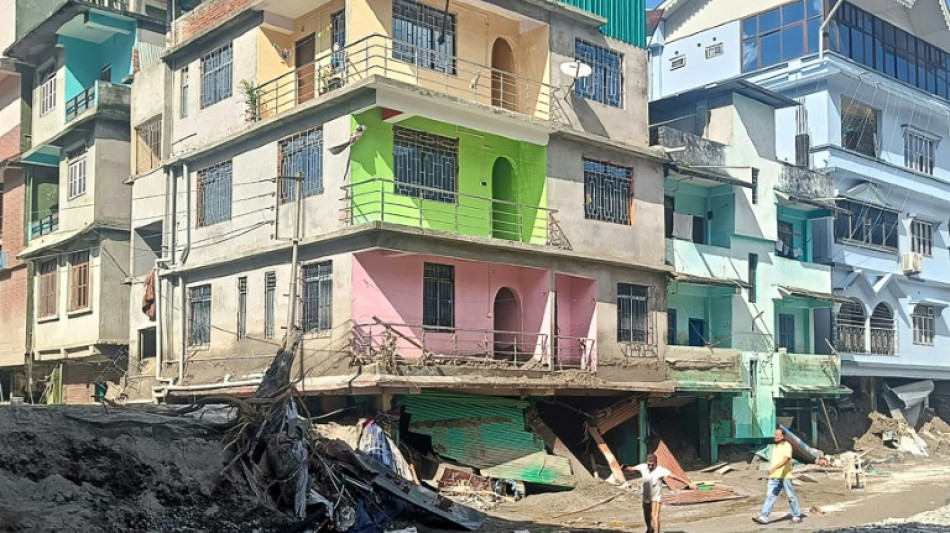
CMSC
0.0320


At least 56 people are confirmed dead in floods that hit India's northeast as of Saturday, with the army warning munitions washed away by the deluge posed a public safety risk.
Violent torrents struck Sikkim state on Wednesday after the sudden bursting of a high-altitude glacial lake.
Climate scientists warn that similar disasters will become an increasing danger across the Himalayas as global temperatures rise and ice melts.
"So far 26 bodies have been found in Sikkim," state relief commissioner Anilraj Rai told AFP by phone.
Thirty more bodies had been recovered from the Teesta river basin by search and rescue teams downstream in neighbouring West Bengal state, Jalpaiguri district police superintendent K. Umesh Ganpat told AFP.
"The river stretches up to 86 kilometres," he added. "The search operation is continuing."
Among the dead are seven Indian army soldiers posted in Sikkim, which sits on India's remote frontiers with Nepal and China and boasts a sizeable military presence.
Sixteen soldiers are among the more than 100 people still missing.
India's defence ministry said in a statement that the floods had washed away "firearms and explosives" from military camps.
The army has "established lookout teams all along the river" to recover loose ordnance, the ministry added.
Local media reports on Friday said that two people had been killed and four others injured by a mortar shell that exploded while flowing through the flood waters in West Bengal.
Roads, bridges and telephone lines have been destroyed across much of the state, complicating evacuations and efforts to communicate with thousands cut off from the rest of the country.
More than 1,200 houses had been damaged by the floods, according to the latest Sikkim government bulletin.
More than 2,400 people had been rescued while nearly 7,000 others were taking shelter at makeshift relief camps set up at schools, government offices and guesthouses, the bulletin said.
- Glaciers melting faster than ever -
The water surge came after intense rainfall burst the high-altitude Lhonak Lake, which sits at the base of a glacier in peaks surrounding the world's third-highest mountain, Kangchenjunga.
Water powered downstream, adding to a river already swollen by monsoon rains, damaging a dam and sweeping away houses.
Himalayan glaciers are melting faster than ever due to climate change, exposing communities to unpredictable and costly disasters, according to the International Centre for Integrated Mountain Development (ICIMOD) research group.
"The root cause is climate change and this going to increase in the future," ICIMOD climate change specialist Arun Bhakta Shrestha told AFP.
"Similar glacial lake outbursts flood events are very likely."
Earth's average surface temperature has risen nearly 1.2 degrees Celsius since pre-industrial times but high-mountain regions around the world have warmed at twice that pace, climate scientists say.
C.M.Harper--TFWP